“Many of the challenges Amala is trying to solve are exactly the ones that mainstream Education also faces. Thus Amala’s journey opens up paths, most of which the mainstream learning could end up treading as well”.
Louie Barnett, Education Lead at Amala
“We focus on competencies that are future-proof and not on specific knowledge or tools that may become obsolete”.
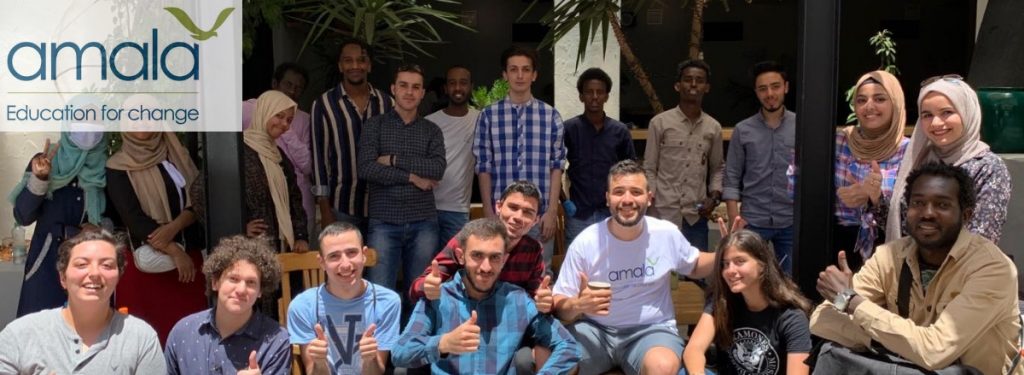
Amala is a UK-based non-profit organization, involved in educating refugee children. With its unique set of challenges, education of refugee children calls for true out-of-the box approaches and solutions. Amala has, in just about two years, developed a unique model for this and has made astonishing progress in realizing it.
Apart from tackling the specific challenges related to the displaced learners, Amala’s educational approach is remarkable as a model for the education for the future. They are providing for their learners excellent and futuristic education, that is not available in many of the mainstream Education systems.
The problem of refugee education is also the broader problem of education of the future, probably on a smaller canvas. Many of the challenges Amala is trying to solve are exactly the ones that mainstream Education also faces. These include the tectonic shift in the jobs landscape, the fading boundaries between learning disciplines, the increasing focus on competencies rather than knowledge, the profound change in the role of teachers and the crucial importance of self-navigated learning. Thus Amala’s journey opens up paths, many of which the mainstream learning could end up treading as well.
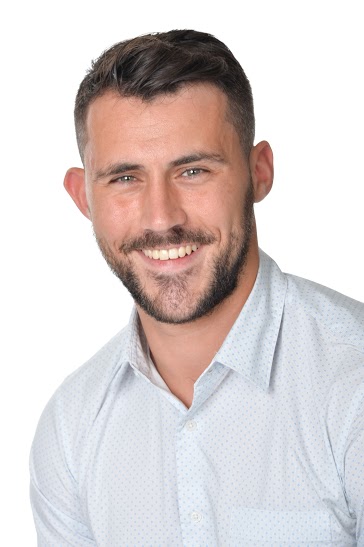
Sankar M, the CEO of Silver Pi, talked to Louie Barnett, the Education Lead at Amala on their approach and some of the unique solutions they have evolved. As the Education Lead, Louie is responsible for leading the development and delivery of Amala’s educational work. He is based out of Singapore.
Q: Can you briefly describe Amala – your mission and where you are at on your goals?
Louie: Amala aims to use transformative education to create opportunities and inspire positive change in the lives of refugees and their communities. As you can see, we are aligning ourselves with one of the most fundamental goals of Education – making a difference in the lives of the learners as well as their communities.
Currently we are in seven countries across Africa, Asia, Europe, the Caribbeans and the Middle East. We run these schools directly or through our local partners.
Q: How would you describe the Educational philosophy of Amala?
Louie: We focus on Agency-based, Holistic education. We aim our learning outcomes to be for the students to attain competencies to make positive changes. This would entail the ability to mobilize the necessary knowledge, skills, understandings and dispositions (attitudes, values, mindsets and qualities) to meet the complex demands involved. We also believe in the principle of life-worthy learning – learning that matters in the lives of the students right now and also in future. Thus our focus is on actions and evidence to those actions, rather than the content or the tools that help them with that.
Q: What is your education offering and model?
Louie: We offer two learning options. The first model is a set of standalone Short courses of 10-week duration each. Examples include Science Informed Action, Maths for Change, Social Innovation, Arts and Cultural Expression, Storytelling, Ethical leadership etc. The learners or the partners can pick any of these courses with an aim to get the relevant competencies.
The second model is our own High School Diploma program. This is a structured program designed to enable students to thrive in higher education, work and entrepreneurship. Over a period of 15 months, the students learn 10 courses, on similar lines as above. Through the Amala Diploma Program, they also do a ‘Personal Interest Project’, which the students choose according to their interests, abilities and circumstances.
Q: Can you elaborate on the pedagogy you use?
Louie: Our pedagogy is based around building on the lived experience of learners. We use the AAA+ model of constructivist learning (Note: AAA+ stands for Awareness, Abstraction, Application – see Bibliography for reference on this model). In this, we first support the students in building their awareness of important concepts and skills. Then we support them in making powerful, transferable generalizations about the links between those concepts and skills, before supporting them in applying that learning. We then support students in deliberate practice in order to build their expertise.
Q: When following project-based and experiential learning approaches, a question that always comes up is about the assessments. How do you ensure that the learning is happening and demonstrate that to all the stakeholders?
Louie: We have no exams to test the students’ knowledge or skill levels. We have defined certain ‘competency areas’ which contain competencies that we expect the students to develop emerging mastery in, during their time on the Amala Diploma Program. The examples of these competency areas include Understanding self, other people and cultures, Self-navigated learning, Sustainable Innovation and Resourcefulness. Our assessments are based purely on the students producing evidence that demonstrates their emerging mastery of a competency and the ability to use it for taking actions and making positive changes.
There could be two key aspects to assessments. The first one is where we make sure that the students are progressing towards mastery of the competencies and conceptual understandings. This is done through continuous sharing, feedback and reflection on the outcomes of their actions. The courses are also structured to enable this.
The other aspect of assessment is the need to demonstrate to all the stakeholders and the larger society on the learning outcomes. For this, we have developed a robust evidencing process that can demonstrate the students’ emerging mastery. We have also aligned our evidencing process with some of the best practices in the industry. For this, we have partnered with the organization Mastery Transcript Consortium.
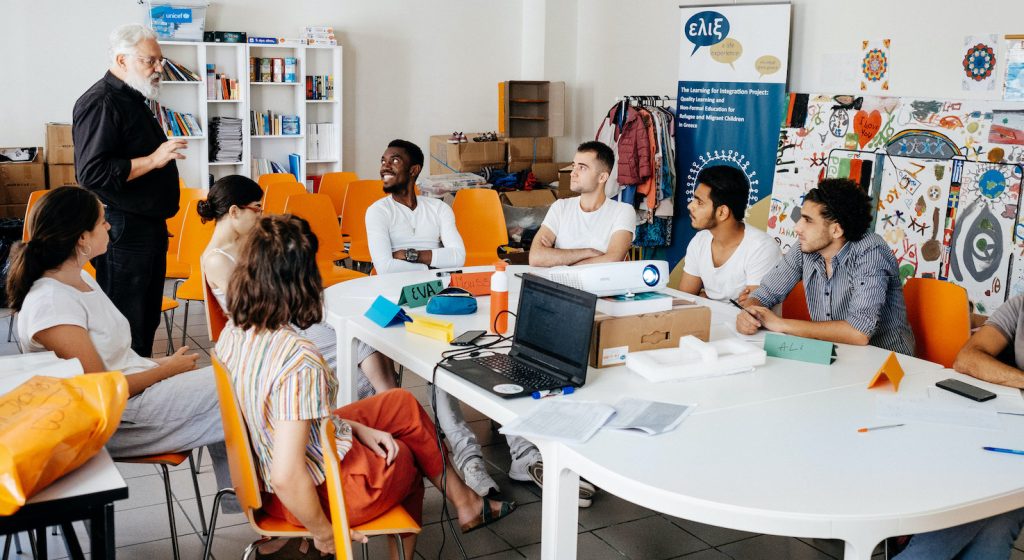
Q: Can you elaborate a bit more on ‘learning evidence’ and how that is collected, tracked and presented?
Louie: An evidence here could be any artifact that can be engaged with and reflected upon. An evidence could be just a written paragraph or an entire project or a Business plan. A given artifact could be just a partial evidence for a particular competency, while another one could evidence an entire set of competencies. Students are expected to signal their learning through the narration of these evidences. Demonstrating one’s own learning using evidence is a competency in itself. Teachers and facilitators work with the students in order to develop that ability.
Q: These days, discussion on any topic cannot ignore the elephant in the room – Covid19. How has it impacted Amala?
Louie: Amala follows a blended learning model with both in-person and online learning components. With the pandemic and the lockdowns, we have had to limit our in-person sessions in many places. But with this, we have created online versions of our blended courses, by adapting some of the activities etc. This in fact has enabled us to potentially offer an online option in future – making us more robust and flexible.
Q: Do you see Online learning becoming a core part of your learning going forward?
Louie: We follow and prefer to continue with the blended model of learning, with in-person and online synchronous modes combined. Though we do not think online mode will replace this, we believe that could add to our options. For example, in future, we may provide some online-only courses to supplement our core courses.
Q: A key question educators around the world are grappling with, is the skills for the future – i.e., what the jobs of the future and the skills needed for them are. How do you address this question in Amala’s program?
Louie: A one-word answer to this would be ‘future-proofing’. We focus on competencies that are future-proof and not on specific knowledge or tools that may become obsolete. For example, we teach our students to use Design Thinking to collaborate and Innovate on solutions. Design Thinking as a tool could become obsolete (though unlikely) – but collaboration and Innovation are future-proof. So our students would be able to apply their learnings on those, with any tools that may be emerge in future.
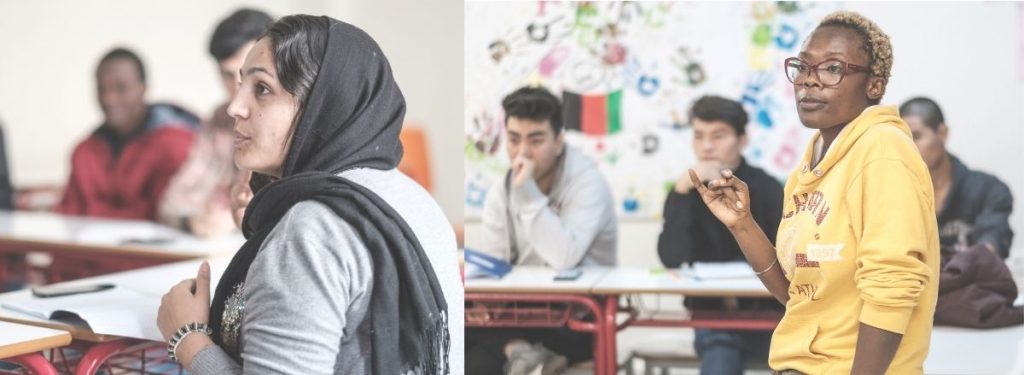
Q: With your experience over the past two years, are there any specific teaching approaches you have found particularly effective?
Louie: We have found ‘simulation’ and immersion to be very effective and popular among students. Another aspect is dialog and discussions. Students love to share their life experiences, ideas and views. It is important to give sufficient time for these discussions for the learning to be meaningful and lasting.
Q: I imagine a unique aspect of the refugee learners is the diversity of their backgrounds, cultures and experiences. How do you reconcile potential conflicts along these aspects?
Louie: This depends on the geographical and cultural context. We adjust our curriculum based on the local needs. For example, we may not discuss the Palestinian conflict as a case in Jordan, whereas it could be a useful topic for the Kakuma camp in Kenya. Thus our curriculum is just a base – the local facilitators and learners themselves bring in a lot of context and color to it.
Q: What are some of the Educational themes you would be focusing on at Amala in the coming months and years?
Louie: We believe choice is becoming more important in education. Students may not prefer to take on a program that is given to them. They might want to create their own personalized education experiences from the options provided. Also, we think online learning in the synchronous mode would give us a lot more options in providing education. We will look at that as well.
Bibliography
MacAlpine, Stuart. “Triple A Plus.” Apple Books, Stuart MacAlpine UWCSEA Sky School, 1 Feb. 2018, books.apple.com/us/book/triple-a-plus/id1349112622.
Amala’s Official website: https://amalaeducation.org/
Sankar is the founder and CEO of Silver Pi.
He had worked in Banking and Technology for about three decades before switching to Education. He is an Electrical Engineer by training, with a career in Technology and Banking across Japan, USA, Singapore and India.

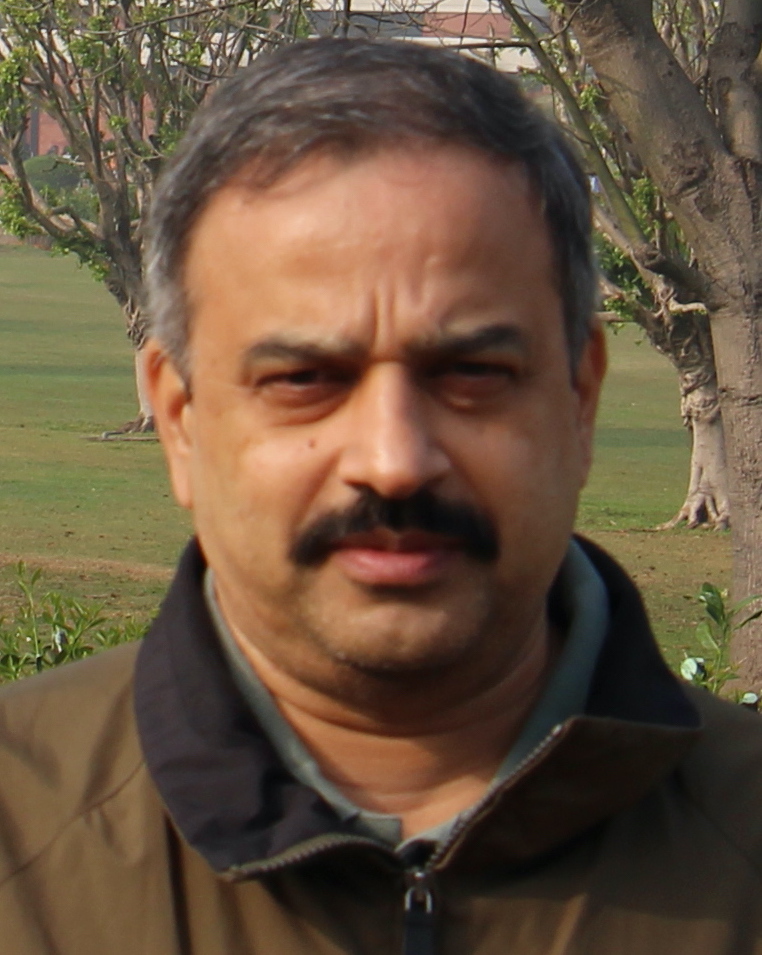
6 comments